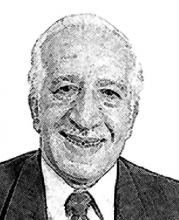You are here
Machinations to worsen Palestinians’ suffering
Aug 13,2016 - Last updated at Aug 13,2016
Within two months, municipal elections will be held in Gaza and West Bank, giving a stronger indication of where the Palestinian people stand.
No general elections have been held since 2006, when Hamas managed to win a comfortable majority against Fateh in the legislative assembly. But the sudden military takeover of the Gaza strip by Hamas exacerbated the already bad trust between the two main factions, which reflected on Hamas refusing to take part in the 2012 elections or in any municipal elections.
On July 15, Hamas declared its acceptance to participate in municipal elections in both Gaza and the West Bank. Such a move reflects Hamas’ confidence that it will win in many of the 416 municipalities (25 in Gaza and 391 in the West Bank) where the vote is service oriented and Palestinians are fed up with the Palestinian Authority’s lack of interaction with them, as well as with rumours circulated by Israelis regarding corruption among Arab officials.
Many political parties, including the Popular Front and pro-Iran Islamic Jihad, see the municipal elections as a barometer that measures their strength compared to other groups.
The Palestinian Authority, with its ageing apparatus and multiple divisions within Fateh, which is President Mahmoud Abbas’ backbone, will not be surprised to have many voters opt for other political groups, since Fateh cannot deliver against the Israeli occupation authorities.
Mahmoud Dahlan, the pariah of Fateh, successfully managed to regroup, from his exile in Dubai, a strong network of followers who are keen to compete in the elections in some of the 416 municipalities.
Turkey, Qatar and Israel see the political side overshadowing the local municipal side in the forthcoming elections.
That explains the millions of Tukish dollars injected into Gaza development projects this month, as well as Qatar’s sudden move to pay the monthly salaries of government employees, in addition to extra millions allocated to Hamas officials to secure an easy victory in their competition next October.
But what would Israel’s role be, seeing Turkey and Qatar bolster Hamas in such a way in the Palestinian territories?
Israel has weakened 82-year-old Abbas and his Palestinian Authority during the last 12 years to such a degree that his Fateh leaders are no longer in a position to save him from a popular defeat in villages and towns.
The Israeli strategy is to allow Hamas to win a majority of votes in the West Bank and then ask American and European donors to stop the usual annual aid to those mayors since Hamas is internationally considered a terrorist organisation.
When such a stratagem is implemented, more Palestinians will be forced, by their hunger and unemployment, to leave their cities, giving their places to the ultra-Orthodox settlers’ movement.














